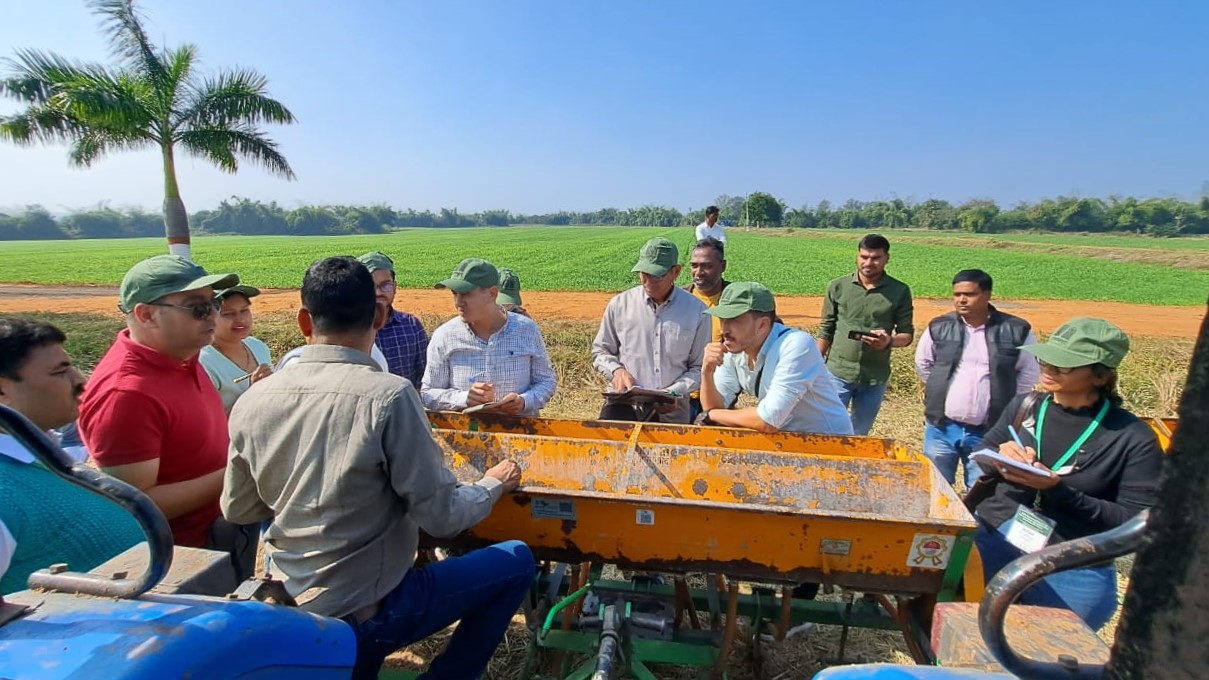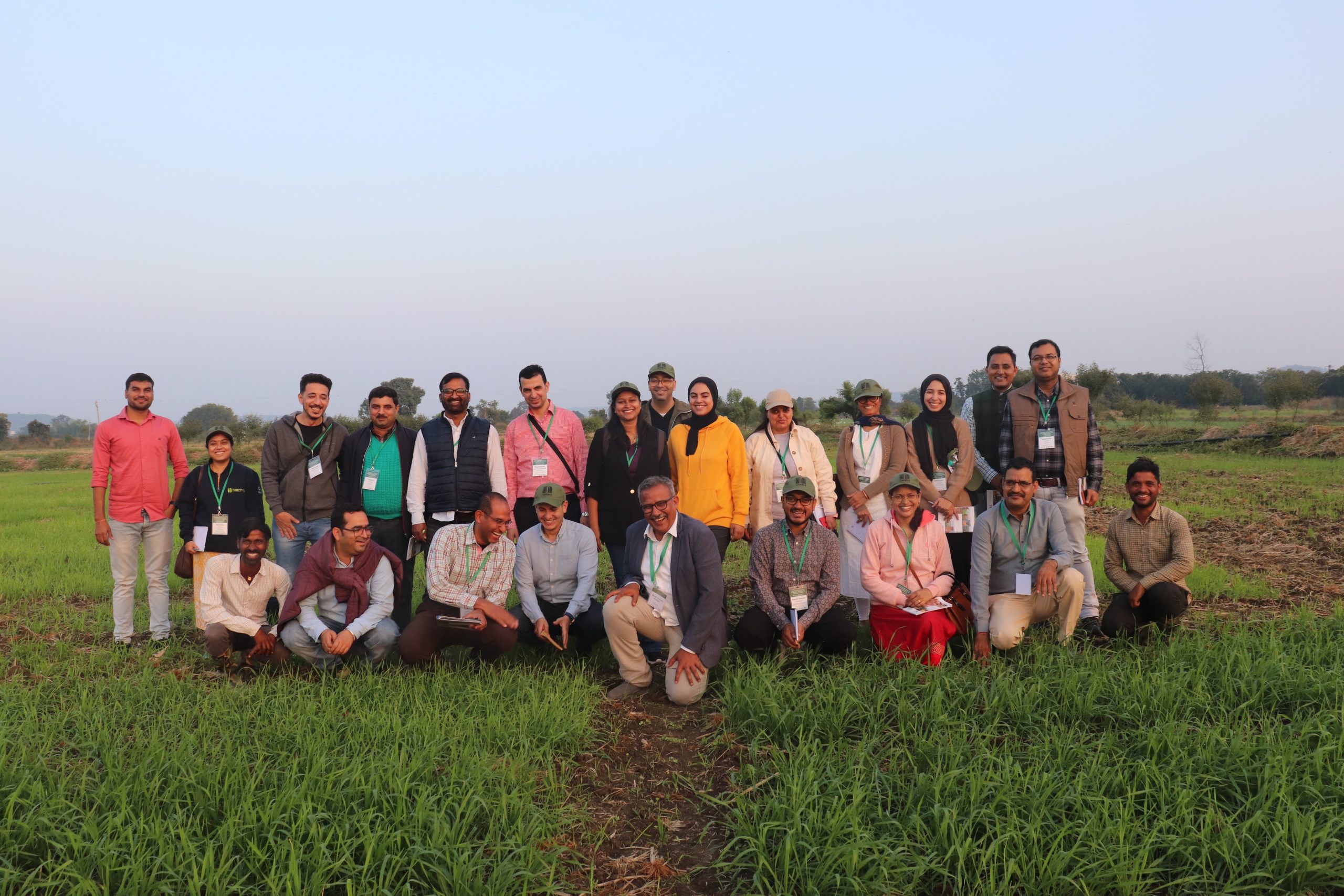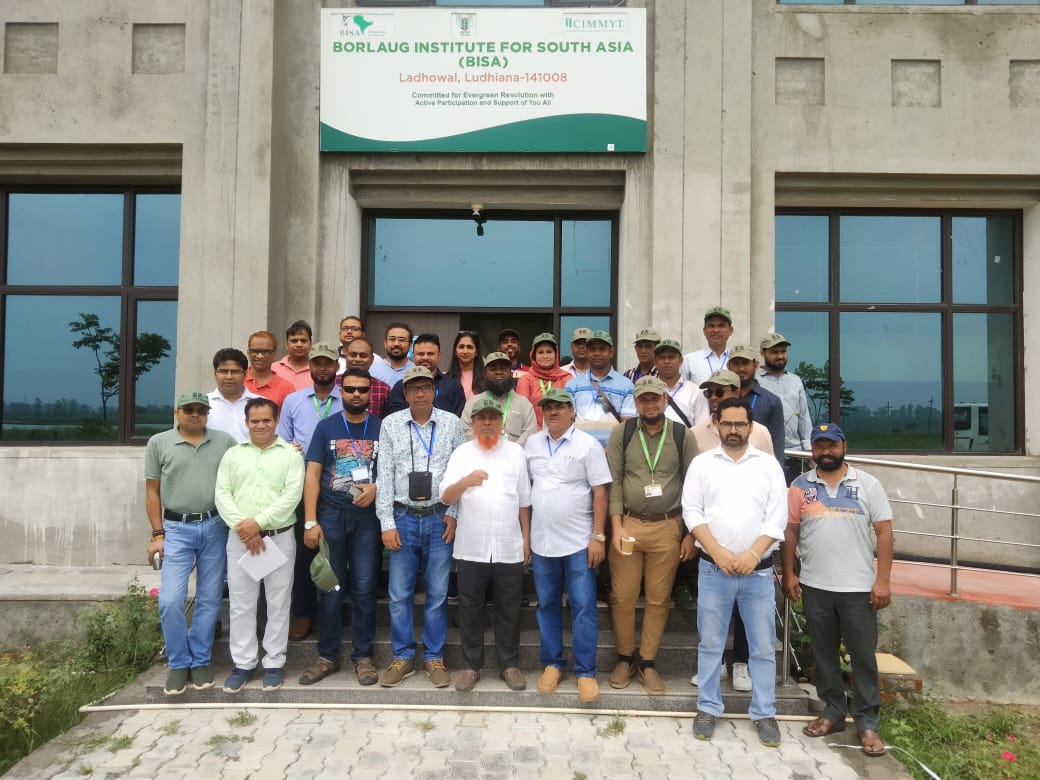
Agriculture feeds the world. Yet traditional cycles of ploughing, planting, and harvesting crop and biomass products is inefficient of labor and other scarce resources and depletes soil health while emitting greenhouse gases that contribute to climate change.
One effort to ameliorate the negative effects of farming is a set of practices referred to as conservation agriculture (CA), based on the principles of minimal mechanical soil disturbance, permanent soil cover with plant material, and crop diversification.
To deliver advanced, high-level instruction on current innovative science around important aspects of cropping and farming system management to scientists from India, Bangladesh, Egypt, and Morocco, the 12th Advanced Conservation Agriculture Course hosted by the Indian Council of Agricultural Research (ICAR), CIMMYT, and the Borlaug Institute for South Asia (BISA) took place in India from December 10 to 24, 2023.
SK Chaudhari, deputy director general for Natural Resource Management, ICAR; HS Jat, director of the Indian Council of Agricultural Research-Indian Institute of Maize Research (ICAR-IIMR); Arun Joshi, country representative for India and BISA managing director, CIMMYT-India; Mahesh K. Gathala, senior systems agronomist and science lead, CIMMYT-Bangladesh; and Alison Laing, agroecologist, CIMMYT-Bangladesh, all attended the opening ceremony at the National Agricultural Science Complex in New Delhi, India.
This CA course integrated scientific advancements and multidisciplinary techniques to sustainably develop agricultural systems, restore natural resources, and improve climate resilience in agriculture throughout Asia and North Africa. It was held at leading research centers throughout India.
SK Chaudhari welcomed delegates to the course and stressed its practical character and efficacy in promoting CA management innovations, as evidenced by the significant achievements and international reputations of many former attendees and resource personnel.
“As climatic variability and change increase, the need to manage agronomic risks grows, and CA is an effective tool for farmers and scientists in both irrigated and rainfed systems,” said Chaudhari.
Twenty rising scientists from such fields as agronomy, soil science, plant protection, agricultural engineering, plant breeding, and extension, took part in the workshop where they gained a better understanding of all aspects of conservation agricultural methods in rainfed and irrigated ecosystems, as well as exposure to wide networks with prominent international scientists. Organizers prioritized the inclusion of female scientists, who made up 40% of attendees.
The workshop empowered participants to act as conservation agriculture ambassadors and champions of modern, novel agronomic methods when they return to their home institutions.
Rajbir Singh, ICAR assistant director general for Natural Resource Management, and ML Jat, global research program director of Resilient Farm and Food Systems, International Crops Research Institute for the Semi-Arid Tropics (ICRISAT) provided keynote addresses at the closing ceremony, held at the ICAR-Central Soil Salinity Research Institute in Karnal, Haryana, India.

 Capacity development
Capacity development 